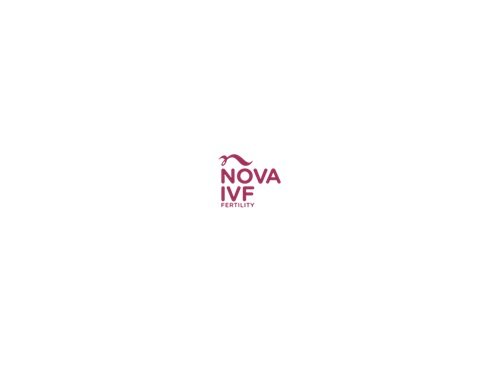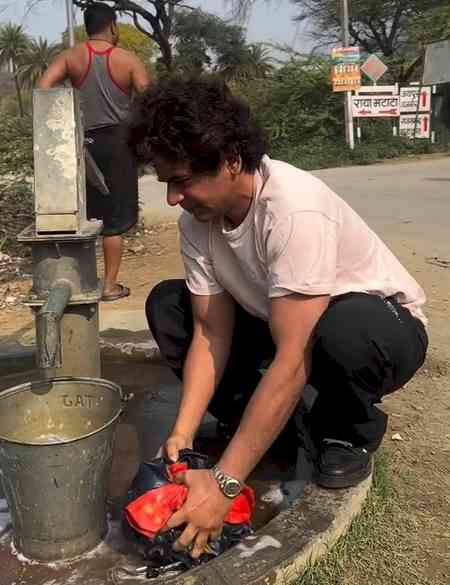Women under age of 30 experiencing diminished ovarian reserve
Some women may experience decline of ovarian reserve sooner than others

Pune: A woman is born with 2,000,000 eggs, which subsequently undergo reduction as she ages. The ability of a woman's ovaries to produce high-quality eggs (and ultimately good-quality embryos) is known as ovarian reserve (OR). The ovarian reserve decides the fertility period or fertility health in females and declines naturally as women age, but some women may experience a decline of ovarian reserve sooner than others.
Discussing the causes and treatment for low ovarian reserve at a press meet held today, Dr Karishma Dafle, Fertility Consultant, NOVA IVF Fertility, Pune, commented, “In the year 2019, Nova IVF Fertility Pune recorded an average of 26% women as Low Ovarian Reserve cases, with an average of 34% women under the age of 30 suffering from low ovarian reserve. During a reproductive cycle, a woman loses around 30-50 eggs every month. This results in a drop in her ovarian reserve, which eventually leads to total depletion at the age of 45-50 years when menopause occurs. A low ovarian reserve can hamper the ability to conceive naturally. However, in cases where women plan to delay pregnancy, a simple blood test called AMH test can help them understand how much longer they can postpone child-bearing and accordingly plan their pregnancy.”
Menopause or the complete depletion of the ovarian reserve before the age of 35 is commonly defined as “premature ovarian failure (POF) or premature ovarian insufficiency. Premature ovarian failure (POF) is a condition where there is an age-related physiological decrease in the number of eggs which could impact the chances of pregnancy. Hereditary, lifestyle, and environmental factors affect the natural onset of menopause.
The average age for menopause is 50 years, with 1% of women menstruating even after the age of 60. However, off late the number of women reaching menopause under 40 years of age is on the rise. Studies have reported that nearly 1-2% of Indian women experience signs of early menopause between the ages of 29 to 34 years. Additionally, this figure goes up to 8% in the case of women between 35 and 39 years of age.
What causes the ovarian reserve to diminish?
While today’s lifestyle habits such as smoking, junk food consumption etc are major contributors to diminishing ovarian reserve, there are several other factors which include :
• Genetic abnormalities (Fragile X and other X chromosome abnormalities)
• Aggressive treatments (radiation for cancer)
• Ovarian surgery, such as for endometriosis
Factors leading to Premature Ovarian reserve
Primary ovarian insufficiency can occur because of X-chromosome abnormalities, autosomal causes, galactosemia, autoimmune disorders, cancer treatment, Turner’s syndrome, enzyme defects, and environmental toxins. In addition, the innumerable rounds of ovarian stimulation done as part of infertility treatment procedures without proper monitoring can also cause a decreased ovarian reserve. Also, family history of premature ovarian failure is also a factor seen in 10% of POF cases.
Detecting primary ovarian insufficiency
In a country with a population of 1.2 billion, it is estimated that a whopping 30 million couples suffer from infertility. What is even more worrying is the rising incidence of young women facing infertility. A condition which was predominantly seen among older couples, infertility is now seen more frequently in women who are younger than 35 years of age.
Case: An IT couple aged 32 years, married for 5 years visited NOVA IVF Fertility, Pune to get treated for primary infertility. Apart from scanty menses, the patient had no other complaints. On conducting an ultrasound check-up, the egg number was found too low for her age (2 eggs/ovary). She was advised to do an AMH test which revealed that her reserve had declined drastically. Her AMH level was 0.3. She was advised early IVF and embryo pooling. After doing two consecutive IVF cycles we got 2 good grade embryos which were transferred and she conceived eventually and gave birth to single healthy baby.
Some of the major symptoms of primary ovarian insufficiency include irregular menstrual cycles, primary or secondary amenorrhoea, hot flushes, night sweats, loss of libido, etc. It is therefore strongly recommended that young women in their late 20s and early 30s who face complications in conceiving should immediately visit a fertility expert. Early detection would provide better opportunity for early intervention.
Anti-Mullerian Hormone (AMH) Test – How to know your ovarian reserve
“Age and fertility of the woman go hand in hand. Since a woman’s egg reserve tends to deplete with age, couples need to plan their pregnancy accordingly. Doctors recommend Anti-Mullerian Hormone (AMH) test to determine the fertility potential of a woman. AMH is secreted by the cells in the developing sacs (follicles) and is a marker for ovarian reserve that is assessed through a blood test. The level of AMH in a woman’s blood gives insight into her ovarian reserve and helps in knowing the number of eggs and the number of fertile years one may have in future” said Dr Karishma.



 cityairnews
cityairnews 









